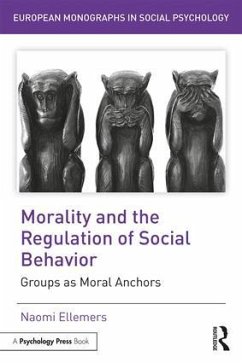
The Social Psychology of Morality
Versandkostenfrei!
Versandfertig in 1-2 Wochen
76,99 €
inkl. MwSt.

PAYBACK Punkte
38 °P sammeln!
This volume makes a case for the pivotal role of social psychology as the core discipline for studying morality through the cutting-edge work of the world's leading researchers in the field. It examines the social psychological processes in moral values and judgments, and analyzes the role of morality in interpersonal processes and group behavior. It provides a rich resource for students and researchers in the social and behavioral sciences concerned with moral behavior, and professionals and practitioners in clinical, counselling, organizational, marketing, and educational psychology where is...
This volume makes a case for the pivotal role of social psychology as the core discipline for studying morality through the cutting-edge work of the world's leading researchers in the field. It examines the social psychological processes in moral values and judgments, and analyzes the role of morality in interpersonal processes and group behavior. It provides a rich resource for students and researchers in the social and behavioral sciences concerned with moral behavior, and professionals and practitioners in clinical, counselling, organizational, marketing, and educational psychology where issues of ethics and morality are of importance.














